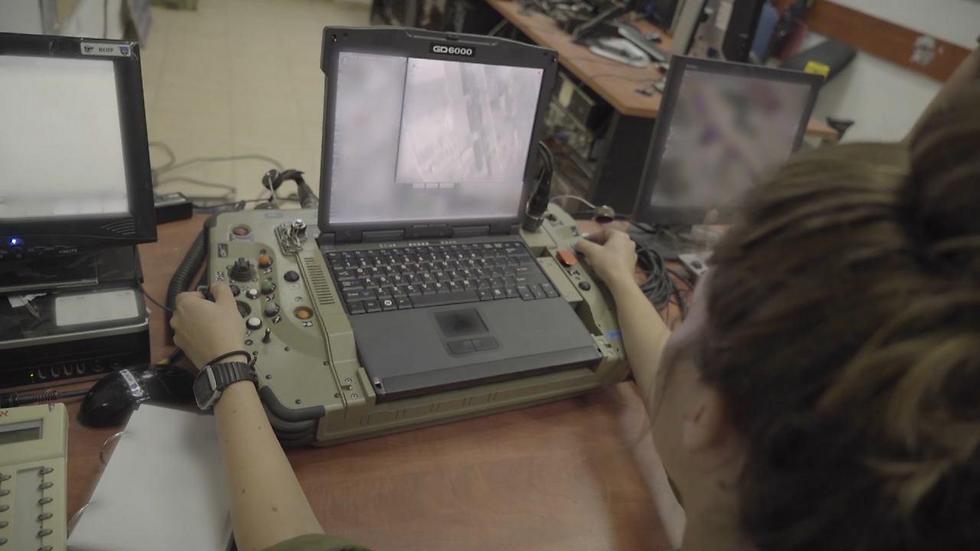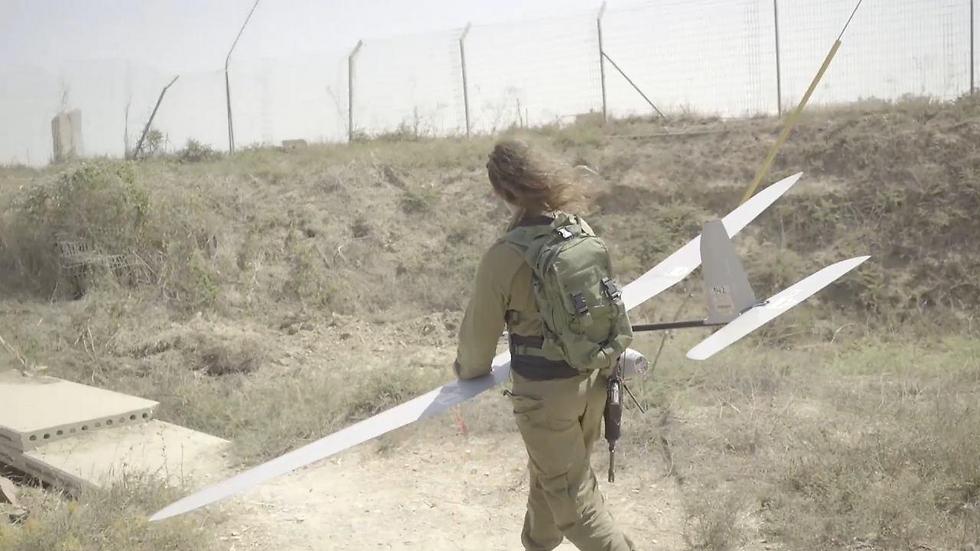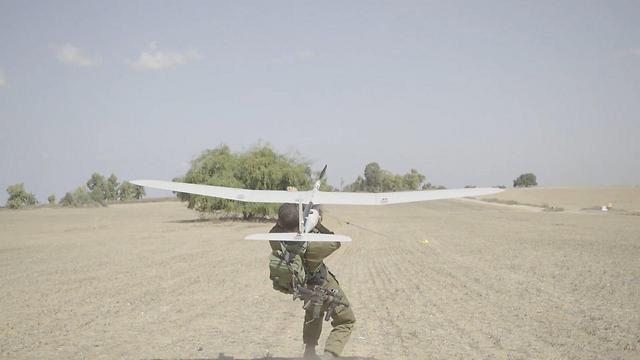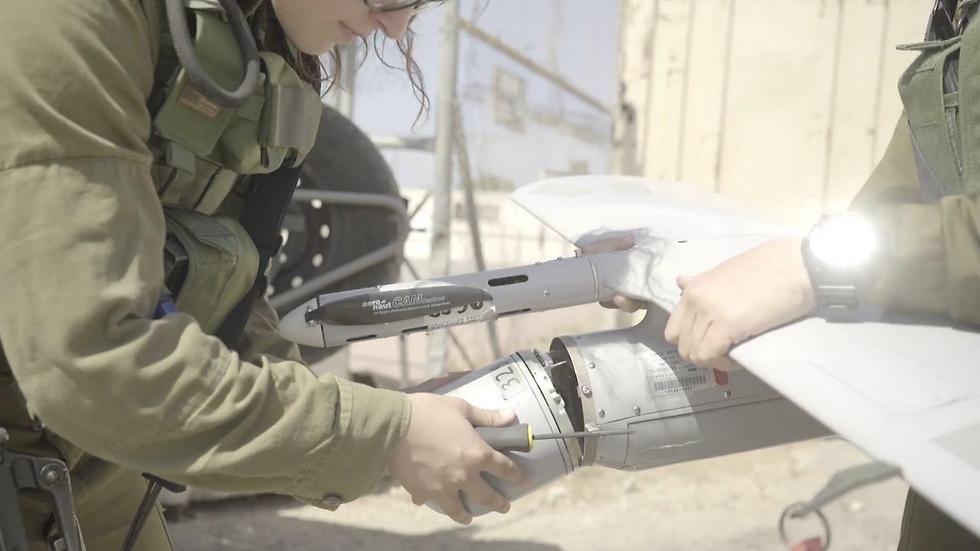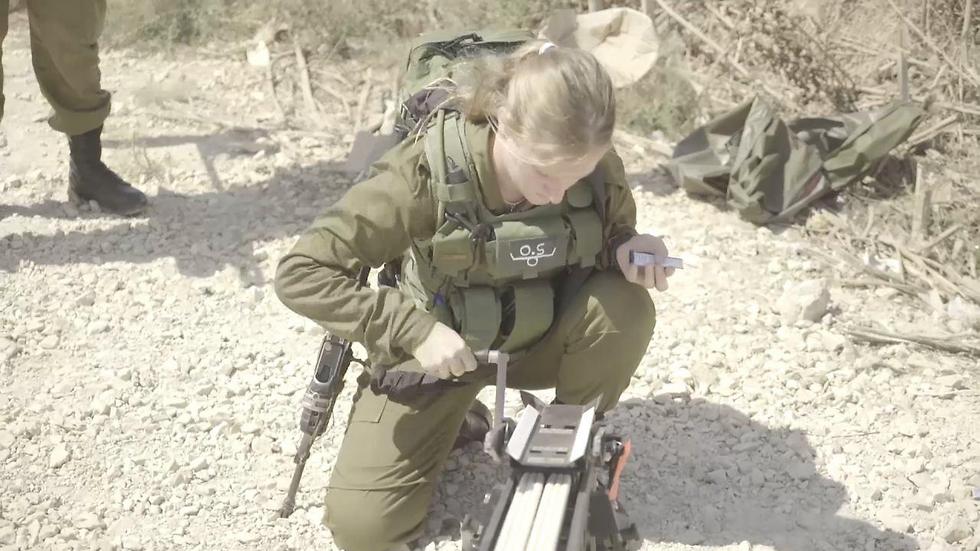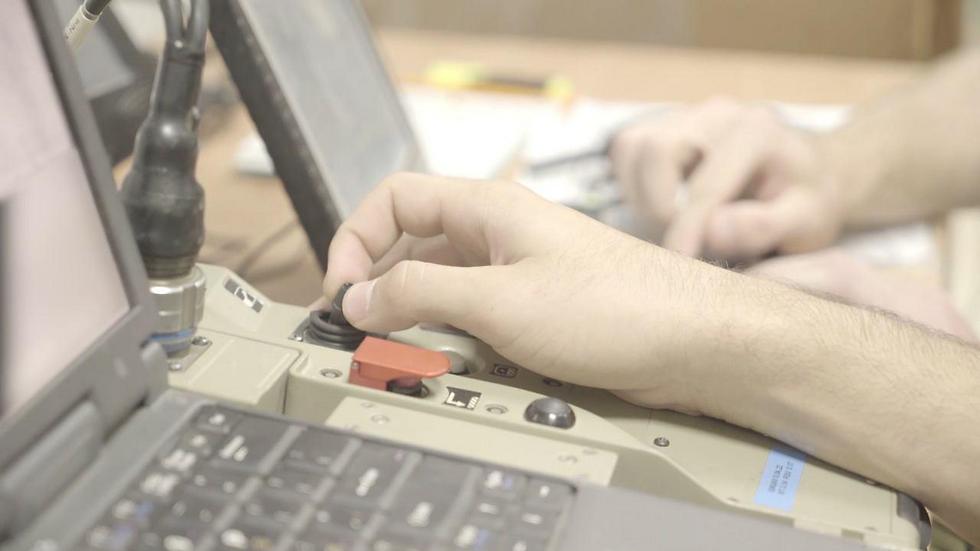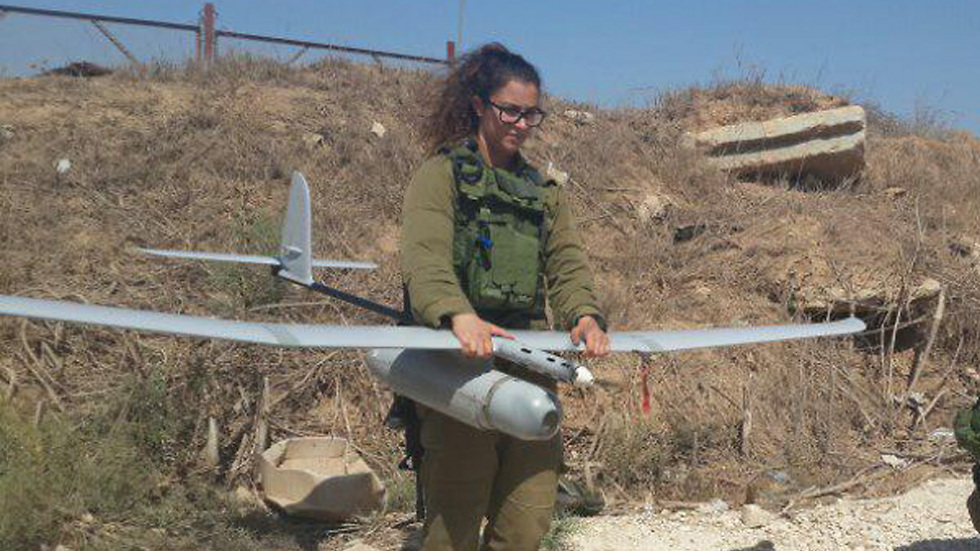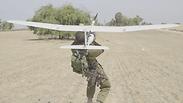
The IDF's eye-in-the-sky over Gaza
Unlike other mixed combat units, the women of the Skylark drone unit operate in all-female teams. With the help of the tiny drones, they follow suspicious vehicles and monitor every step made by Hamas's senior officials in Gaza. Ynet joined them to see how intelligence collection is done on the border.
While the Gaza border area has experienced relative calm since Operation Protective Edge ended two years ago, the Southern Command, the Shin Bet, and Military Intelligence are still working around-the-clock to prepare for the next war against Hamas. These efforts mostly focus on gathering intelligence and growing the IDF's "target list," along with work to thwart border-crossing terror tunnels.
"Last weekend, we had a series of identifications and we collected new coordinates," said Capt. Toval Tzadok, the commander of the combat intelligence collection company in the Gaza Division.
Capt. Tzadok is the one who sets the assignments for the Skylark teams along with the commander of the territorial brigade.
"We follow suspicious vehicles arriving at the homes of Hamas operatives and monitor observation points and enemy command centers—what we find gets all the way to the division commander, Brig. Gen. Yehuda Fox," she explained.
"We provide a lot of visual information which becomes part of the intelligence puzzle," said one of the female fighters in the unit.
"A lot of the time, our drones are launched when an IDF lookout identifies a vehicle of a senior Hamas official that makes it all the way to the border fence. We're then called in and within minutes have the drone in the air. We follow him for hours, sometimes all the way to the shore or to the north (of the strip). There are also scheduled assignments, like when we have intelligence suggesting something is about to happen on the other side of the border."
The IDF's smallest drone, Skylark, has operated on all fronts —from the Syrian border in the Golan Heights to the Sinai border in the south. While it is considered a credible, effective and sought-after drone by every battalion and brigade commander, one usually crashes in enemy territory once or twice a year.
However, a senior officer in the unit said the enemy will find no value in a crashed drone, perhaps except for a psychological "achievement" for having captured it. Hamas fighters have released photos they've taken of a drone that crashed in the Gaza Strip more than once .
The officer also noted that all of the crashes have been due to technical issues with the drone, and none have been shot down.
The female combat soldiers of the Skylark unit won't be in the battlefield during wartime because of the heavy weight of the drone, which is carried on the backs of the unit's male soldiers. But the male soldiers also get to reap the "benefits" of a small launcher developed for the female fighters—a catapult with a rope that stretches from the launching pad, sending the drone into the air without the need to manually pull a cable, as is done in the launch of most Skylark drones.
The small launcher, about seven and a half feet in length, can be operated from the roof of any structure, any place on the battlefield, and even from the back of an armored personnel carrier (APC).
But the drone's main advantage is its low flight altitude—500-600 meters. The drone can even fly below the clouds if necessary, something larger drones don't normally do
"With this drone we can follow several Hamas militants, and we can, based on the analysis of the material we have, figure out where they are gathering, thereby increasing the number of targets for an attack—if and when this information is needed," said 2nd Lt. Ofir Eyal, the commander of a team in the Skylark unit, while looking at the flat screen that was showing her live, high quality images from the Gaza Strip that were coming in from the drone she was controlling.
"We monitor Hamas's training with the drone. The soldiers are professional enough to decide who and what to follow in real time during a mission," Eyal said, not taking her eyes off the screen during the interview. Minutes later, her team was once again called to action following the identification of a suspect.
One member of her team is Sgt. Ariella Lock, a lone soldier who made aliyah from Cleveland, OH, so she could enlist in the IDF and serve in combat. According to her, "There's no difference between us and the male fighters."
The unit's commander, Lt. Col. Ran Ashkenazi, said that "just last weekend, our teams were called in because of an alert on a soldier being kidnapped in Nablus—which turned out to be a false alarm. There is no area we don't operate it, including over Lebanon. Battalion and company commanders in the different divisions 'fight' over the Skylark teams."
The next stage in Skylark's evolution is currently being developed Ashkenazi said. While the current drone is being used by the company or battalion commanders and weighs 7 kilograms, the new drone will weigh about 50 kilograms and is meant for brigade commanders. It will be able to stay in the air longer and provide images of a much higher resolution.










